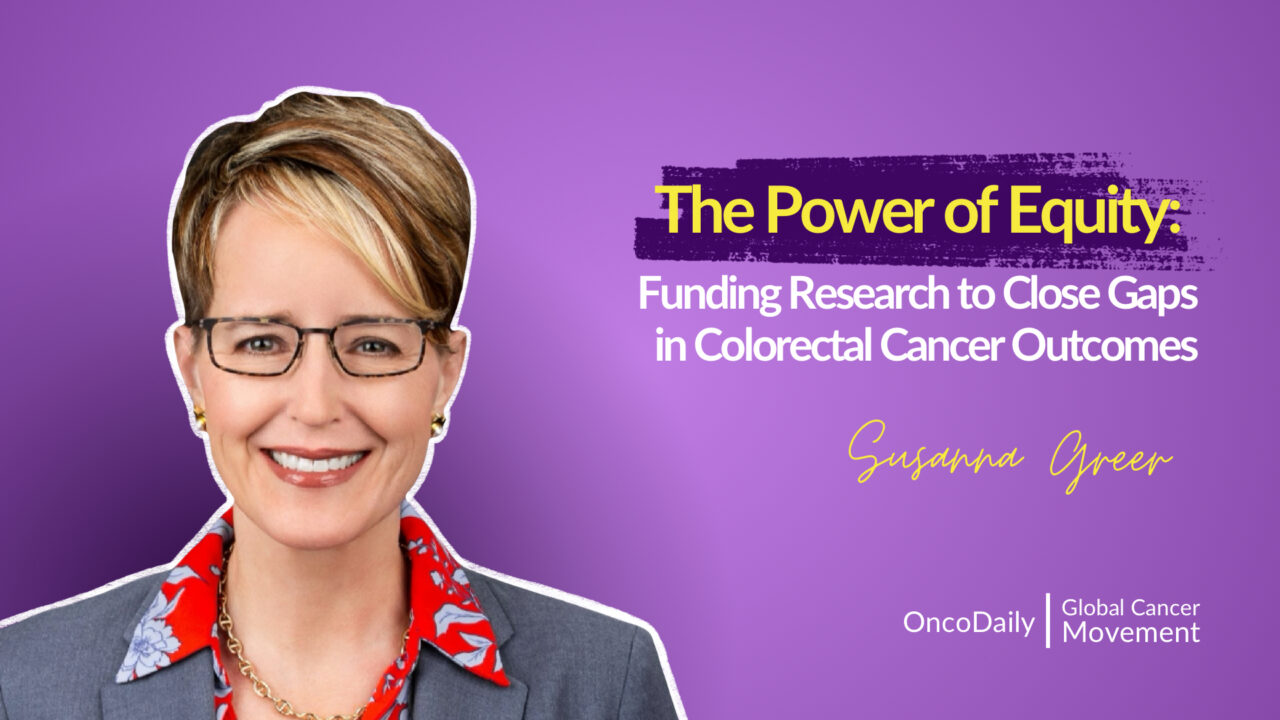In the inaugural event of the Global Cancer Movement, initiated by OncoDaily, Dr. Susanna Greer, Chief Scientific Officer of the V Foundation for Cancer Research, shares her insights into the transformative work the Foundation is doing in cancer research. The virtual event, held from December 6-8, 2024, brought together global experts to explore groundbreaking advancements in oncology and the vital importance of funding innovative research.
In this segment, Dr. Susanna Greer introduces the V Foundation for Cancer Research, an organization established by Jim Valvano in collaboration with ESPN. The foundation, now in its 31st year, is dedicated to funding research that spans the entire cancer journey—from prevention to palliative care—and across all cancer types and stages of scientific discovery, including basic science, animal models, and clinical trials.
The speaker emphasizes the foundation’s commitment to equity in cancer research, advocating for advancements in access and innovation, particularly in colorectal cancer, which is the third most common cancer worldwide and the second leading cause of cancer-related deaths.
Noting the expected rise in the global burden of colorectal cancer, with significant projections for deaths by 2040, the speaker highlights the foundation’s focus on reducing disparities in cancer outcomes based on socioeconomic, racial, and geographic factors. Equity, the speaker asserts, must be central to research efforts to ensure that underserved populations receive the benefits of advancements in cancer care.
The speaker shares insights into the groundbreaking work of several V Foundation-funded researchers:
Dr. Charles Rogers at the Huntsman Institute in Utah is tackling disparities in colorectal cancer screening, particularly among African Americans, by addressing barriers such as mistrust, cost, and lack of culturally relevant education through community-based interventions.
Dr. Mayan Levy at the Iverson Cancer Center is pioneering a non-invasive approach for individuals with Familial Adenomatous Polyposis (FAP) through beta-hydroxybutyrate (BHP) supplements, which mimic the effects of fasting or a ketogenic diet, offering a safe, affordable option for at-risk individuals.
Dr. Parika at Mass General is advancing research on KRAS mutations by exploring combination strategies to overcome resistance to KRAS inhibitors and improve patient responses.
Dr. Basil El-Reyes at the University of Alabama in Birmingham is focusing on cancer-associated fibroblasts in the tumor microenvironment to enhance the effectiveness of standard treatments and reduce resistance.
Dr. Livia Eberlin at the Duncan Comprehensive Cancer Center in Houston is refining the use of a mass spectrometry pen to identify cancerous tissues during surgery, aiming to improve surgical outcomes by ensuring complete removal of cancer while preserving healthy tissue.
The speaker highlights the profound impact of the V Foundation’s funding, which has facilitated 39 colorectal cancer-specific grants totaling $8.9 million. These grants have led to over 3,600 publications, 32 clinical trials, and an additional $7.4 billion in leveraged funding. The foundation’s work has created a “ripple effect” in cancer research, extending its influence well beyond the direct grants provided.
Emphasizing the importance of equity in research, the speaker discusses the Stu Scott Memorial Research Fund, which addresses cancer disparities and supports underrepresented researchers in STEM. Since 2015, this fund has allocated $11 million to cancer disparities research and supported 28 grants, representing a vital investment in tackling inequities in cancer care and outcomes.
The segment concludes with an emphasis on cancer interception and early detection, particularly in colorectal cancer.
The V Foundation prioritizes less invasive screening methods and innovative research to identify pre-cancerous cells and target early-stage tumors, significantly improving survival rates. The speaker shares key findings from foundation-funded research, including the role of socioeconomic factors, genetic markers predicting immunotherapy responses, disparities in robotic surgery access, and the influence of circadian rhythm disturbances on colorectal cancer in young adults.
Finally, Susanna Greer underscores the foundation’s mission to achieve a victory over cancer through equity-driven and innovative research, ensuring that every patient, regardless of background, has access to the best care and science. The segment ends with a call for collective action to advance this vision.


